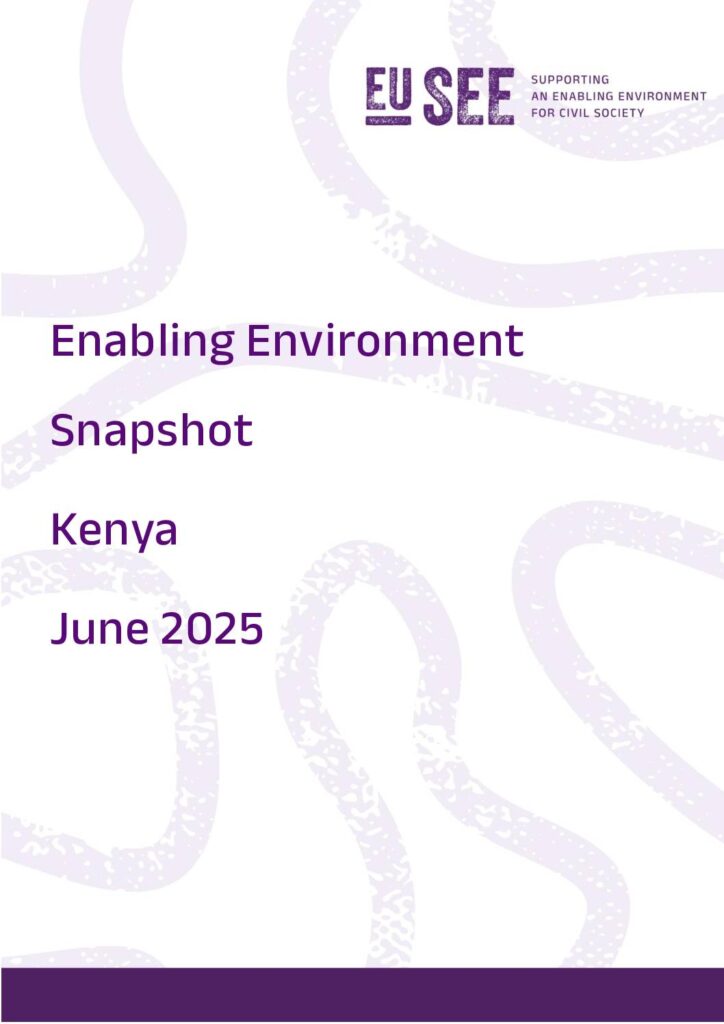While the Constitution of Kenya provides for fundamental rights and freedoms for civil society – such as freedom of expression, of association, and of peaceful assembly – in practice there is repression by the state. Kenya has witnessed a series of violent crackdowns on protests, most prominently against the Finance Bill in June 2024, which resulted in deaths, injury, abduction and arrest of activists. In 2025, there have also been various cases of excessive use of police force against protesters. As a result of the repressions, Kenya’s civic space rating downgraded in December 2024 from Obstructed to Repressed.
Some recent legal reforms aimed at regulating civil society have struggled with low levels of compliance, partly due to new and restrictive legal requirements that discourage adherence. For instance, the Public Benefits Organizations Act, 2013 – implemented in May 2024 – introduced a new regulatory framework for civil society organisations (CSOs), but compliance remains limited. In parallel, Kenya has also experienced recent turbulences in donor funding. In particular, the USAID funding freeze led to the termination of several projects, creating a significant funding gap for CSOs. This has negatively impacted the enabling environment for civil society, especially given their high reliance on international financial support.
The quality of engagements between government and civil society is generally poor and varies, with negligible responsiveness at the national to county levels, potentially discouraging participation through local networks at least. Furthermore, the public distrust of civil society has worsened due to different multiple narratives pushed by the government leading to eroding trust in civil societies and non-state actors. Frequent attacks on media and digital spaces have increased, in turn refraining individuals from meaningful online engagements.

